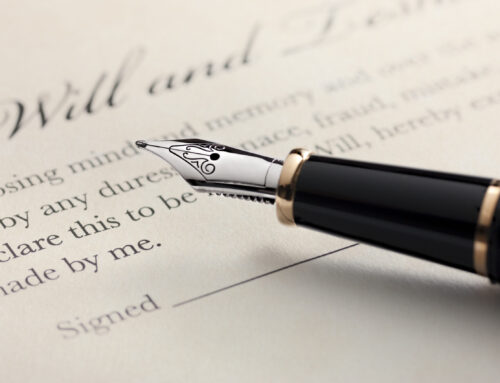Making a will can be a strenuous task to get your head around and is only made more difficult if you are unsure whether to write your own or get one drafted by a solicitor. Every year, one in three people die without having a will in place and more than 70% of people up to the age of 64 don’t have a will. It is important to have a will prepared and in place so that your wishes are protected in the event of your death.
Making sure that you have written record of your wishes is vital to ensuring they are carried out, and accuracy is key. For this reason, you need to think carefully about whether you want a homemade vs solicitor drafted will. Here’s everything you need to know to help you make the best decision…
What Is A Will?
A will is a legal document that sets in stone your wishes for the future concerning what happens to your estate (including your property and assets) after you die. It is a binding document signed by yourself and two witnesses so that it can be officialised. It will also ensure your loved ones don’t have to pay more inheritance tax than necessary, and everything can be finalised before the time comes, leading to less stress and uncertainty during what will surely be a difficult time for your family.
It’s important to be completely clear about what you wish to happen to your belongings, so there is no uncertainty concerning how everything will be distributed and settled. In addition to your physical property, possessions and money, it’s also vital you key details that make provisions for any children or pets, including who will care for your children if they’re under 18, who you would like to care for your pets, and any financial arrangements necessary to ensure they are cared for as you would wish. If you have a small business you will also need to detail what should happen to it, and you may also like to detail any specific funeral plans you want.
Do I Need A Will?
It’s easy to think of a will as something only needed by the elderly, or people with health conditions. But even if you’re young, fit and healthy it is vital to have a will in case you pass away and haven’t structured your assets. If you don’t have a will, the law will decide who gets what, and your assets may well end up with the wrong people.
It is important to think about how much it will aid your friends and family when you die if everything is written in a will. It then becomes a straightforward procedure and limits the fees needed to get it finalised, ensures your wishes are respected and followed, and minimises the stress and worry of an inherently stressful time.
How Do I Write A Will?
There are two different approaches to creating a will. One way is to DIY it and write your own. The other option is to gain legal advice and get one drafted professionally.
Before deciding whether to do a homemade or solicitor drafted will, it’s important to understand the positives and negatives of each option, so you can work out what will be best for you. The most important thing to realise is that writing your own will carries certain risks, as incorrect wording can cause confusion and cause the document to become invalid.
The Benefits Of Writing Your Own Will
Homemade wills can be cheap and easy to find, particularly you have access to the internet. It’s not difficult to find free templates you can copy and paste which can help you format your will. You can also buy ready-made packs. These types of wills are perfect for people who have very simple wishes and their personal finances all in check.
One worry with a homemade will is that it isn’t official. To make it legal you will need to make sure it is signed, dated and witnessed in the appropriate way. You also need to make sure that all names, addresses and information regarding named individuals in your will are precise, accurate and spelt correctly. Any mistakes could cause your will to be invalid.
The Negatives Of A DIY Will
While the DIY method is convenient it can be very difficult to make sure that everything has been written correctly and formalised properly. If you are using a free template, the company that creates them won’t take responsibility for the invalidation of any wills, so you may need to be careful with this.
It is a big risk is, if it’s invalid, the law will decide who gets what, which can cause stress and disruption within the family. You may not have realised how much detail is necessary or have neglected to specify someone to act as executor of your will.
A DIY will is something you really have to think about before doing. Don’t rush it and take the time to double check everything to make sure you are fully confident that you have provided the correct information.
The Benefits Of A Will Drafted By A Solicitor
This option is usually more beneficial and less stressful. It means that you are protected if there are any problems, as your solicitor should be regulated.
Getting a solicitor provides less risk than a DIY will as you also have peace of mind that it is valid and all information is correct.
Overall, it is a lot less complicated to get a solicitor to draft your will and manage everything for you. It’s more reliable and saves you the time and effort needed to research what needs to be included, how it should be structured etc.
The Negatives Of A Solicitor Drafted Will
Solicitors fees can be expensive compared to a DIY will. However, many solicitors have fixed fee pricing which can help you calculate and plan your costs. The majority of solicitors will charge around £150 plus VAT for a basic will and around £250 plus VAT for mirror wills for partners.
What To Do Next?
If you need advice on a writing your own will, it’s best to come to our experts at Beeston Shenton. We can help you plan, create and write your will, checking that all information is accurate and all areas are filled in correctly, with witness signatures included as needed. We also offer a free will review service every 5 years at our main offices in Crewe, Sandbach and Newcastle-Under-Lyme. This is very beneficial as it means your will can be checked and any changes that need to be made can be discussed, as circumstances may have changed. Get in touch if you need any information or advice on making your own will.




